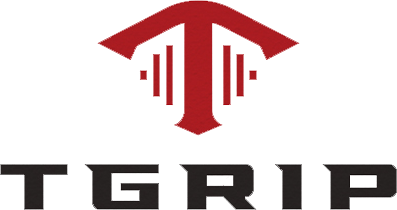As a beginner on the fitness journey, the world of nutrition can feel overwhelming. With countless diets, supplements, and conflicting advice, it's easy to get lost in the maze of nutritional information. However, understanding the basics of proper nutrition is crucial for achieving your fitness goals, whether it's building muscle, losing fat, or simply maintaining a healthy lifestyle.
In this blog post, we'll dive into the fundamentals of nutrition, debunk common myths, and provide practical tips to help you build a solid foundation for your fitness journey.
Understanding Nutrition Basics
At the core of nutrition are three macronutrients: proteins, carbohydrates, and fats. Each of these plays a vital role in your body's function and overall health.
Proteins are the building blocks of muscle, responsible for repairing and maintaining your body's tissues. Carbohydrates are your body's primary source of energy, fueling your workouts and daily activities. Fats, often misunderstood, are essential for hormone production, nutrient absorption, and providing long-lasting energy.
In addition to macronutrients, micronutrients, such as vitamins and minerals, are equally important. These essential nutrients support a wide range of bodily functions, from immune system health to bone strength.
Understanding the role of these macronutrients and micronutrients is the first step in creating a balanced and effective nutrition plan.
Common Nutrition Myths Debunked
As you delve into the world of nutrition, you'll encounter a myriad of myths and misconceptions. It's crucial to separate fact from fiction to avoid falling into the trap of fad diets or unsustainable practices.
One common myth is that fat is the enemy when it comes to weight loss. In reality, healthy fats are essential for hormone regulation, brain function, and overall well-being. Another myth is that carbohydrates should be eliminated for muscle growth. In fact, carbohydrates are crucial for providing the energy your body needs to build and maintain muscle.
Debunking these myths and understanding the truth about nutrition is key to developing a healthy, sustainable approach to your fitness goals.
Building a Healthy Eating Foundation
Establishing a solid foundation for your nutrition is the key to long-term success. This starts with prioritizing whole, nutrient-dense foods, such as lean proteins, complex carbohydrates, and healthy fats.
Meal planning and preparation are also essential. By taking the time to plan your meals and snacks, you can ensure that you're consistently fueling your body with the right nutrients. Hydration is another crucial component, as water plays a vital role in various bodily functions.
Nutrition for Specific Fitness Goals
Whether your goal is to build muscle, lose fat, or maintain overall health, your nutrition plan should be tailored to your individual needs. For muscle growth, you'll need to focus on consuming enough protein and complex carbohydrates to support muscle repair and recovery. For fat loss, you'll need to create a calorie deficit while ensuring you're still getting the necessary nutrients.
Balancing your nutrition for overall health is a delicate dance, but with the right guidance and education, you can find the sweet spot that supports your fitness goals while promoting long-term well-being.
Practical Tips for Beginners
As a beginner, navigating the world of nutrition can be daunting. Here are some practical tips to help you get started:
- Learn to read nutrition labels: Understand the information provided on food packaging to make informed choices.
- Develop smart grocery shopping habits: Stick to the perimeter of the store, where whole, unprocessed foods are typically located.
- Explore simple, nutrient-dense meal ideas: Incorporate a variety of lean proteins, complex carbohydrates, and healthy fats into your daily meals.
The Role of Supplements in Nutrition
While whole, nutrient-dense foods should be the foundation of your nutrition plan, supplements can play a supportive role in certain situations. Understanding when and how to use supplements can help you fill any nutritional gaps and support your fitness goals.
Common supplements for fitness enthusiasts include protein powders, creatine, and omega-3 fatty acids. However, it's crucial to research the potential risks and benefits of any supplement before incorporating it into your routine.
Overcoming Common Nutrition Challenges
As you embark on your fitness journey, you'll likely encounter various challenges, such as cravings, eating out, and maintaining consistency. Developing strategies to overcome these obstacles is key to long-term success.
Learning to manage cravings, making smart choices when dining out, and finding ways to stay consistent with your nutrition plan will all contribute to your overall progress and well-being.
The Importance of Nutrition Education
Ultimately, the key to navigating the maze of nutrition is continuous education and a willingness to adapt. Seek out reliable sources of information, consult with professionals, and be open to learning and adjusting your approach as you go.
Remember, your nutrition journey is unique, and what works for one person may not work for another. By staying informed, listening to your body, and making gradual, sustainable changes, you can unlock the full potential of proper nutrition to support your fitness goals and overall health.



